EXCLUSIVE INTERVIEW
Danjul:
Reinventing Reality Through Artistry
Conducted by Guillaume Jean Lefebvre
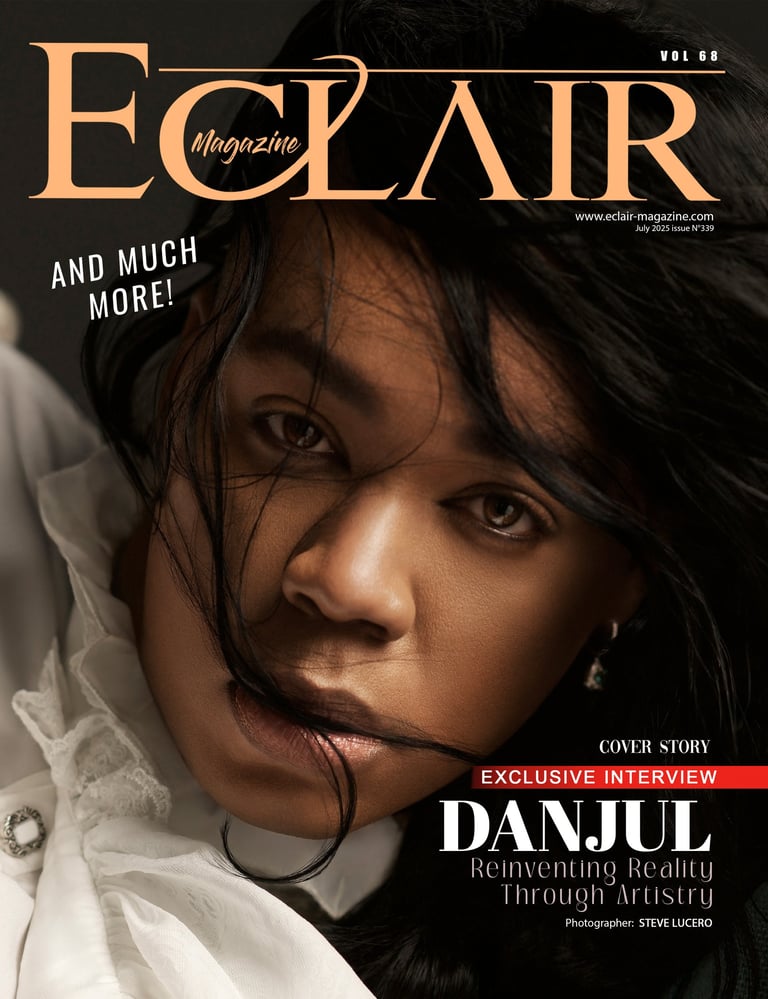

In a world that often demands conformity, Danjul is a rebellion in motion. Born Deshawn Franklin in Inglewood, California and raised in Covina, his name—and his identity as an artist—has always been a story of transformation. "Danjul" isn’t just a stage name; it’s a reinvention of self. A symbol of fantasy, truth, and the battles he's fought to become who he is today.
Life was never easy. Growing up, Danjul faced hardships many never see. Struggle wasn’t a phase—it was the foundation. But where others might have broken, he built. Through music, he found escape, healing, and the language to express what words alone could never contain.
The passing of his beloved grandmother in 2021 shattered him. And in June 2025, tragedy struck again when he lost his uncle — Dave Scott, legendary choreographer and one of Danjul’s earliest supporters. "Everything I do now is for them," he says. These losses didn’t break him. They fueled his purpose.
Long before he had a studio, Danjul was directing imaginary music videos in his head. He studied artists, film, choreography — not as a fan, but as a visionary in training. "I don’t just make songs, I build experiences." Every release is a world in itself: emotional, layered, cinematic. He's a perfectionist with intention behind every move. His creative process is immersive, intense, and always evolving.
Danjul’s academic journey was marked by resilience. Though intelligent and determined, financial constraints closed many doors. He began at a community college before transferring to Long Island University (CW Post) in New York. To survive, he juggled multiple jobs — from working on campus to folding clothes at Abercrombie & Fitch on Fifth Avenue. At one point, he pursued modeling, investing what little he had. But between paying rent, tuition, and barely making ends meet, that dream was shelved — for a time.
The breakthrough came in February 2024, when Danjul signed with WHOMAG/Sony via Rob Schwartz’s distribution imprint. It was the moment he’d worked toward for years. Then on May 16, 2025, he released his debut single "Dirty Playground", which premiered on KISS FM UK — an international debut that felt surreal. The track’s reception was proof: his vision had power.
Today, Danjul is focused on building something bigger. He's working on new music, visuals, and a cinematic universe unique to him. But he also dreams of stepping into the fashion world — perhaps even as a Calvin Klein jeans model. Not just for the aesthetic, but to embody his full artistry across mediums.
Yet the dream goes deeper. What Danjul wants more than awards or status is to finally buy his mother the home she’s always deserved. To leave behind the cycle of survival and embrace peace, stability, and freedom.
That’s how he hopes to be remembered — not as someone who followed a path, but as someone who created one. A fighter. A dreamer. A builder of new worlds. Someone who stayed true, and through that truth, inspired the next outsider who dares to believe they belong.
Discover more at:
www.danjulmusic.com
Listen to “Dirty Playground” Instagram: @storyofdanjul
Biography
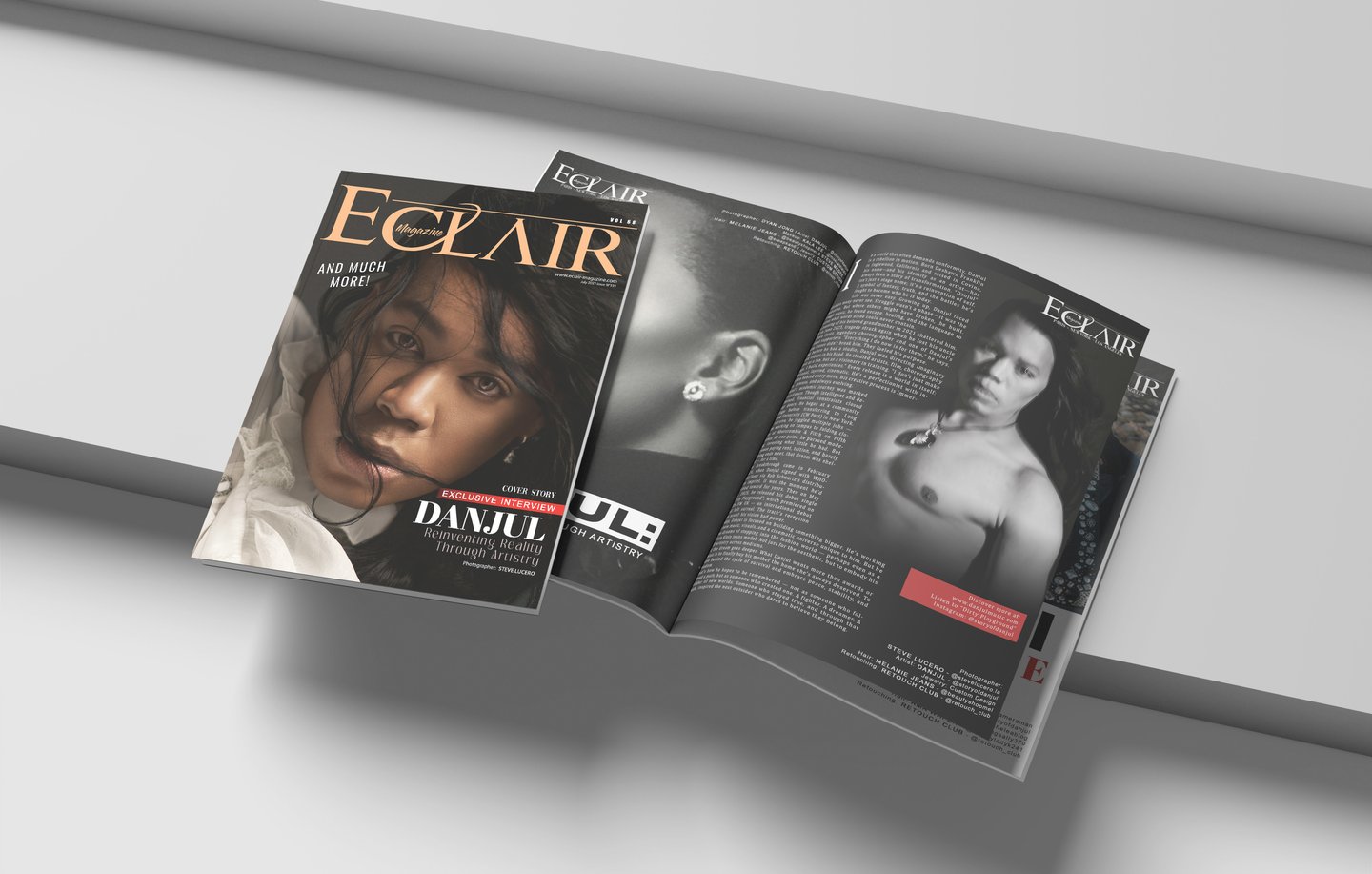

Photographer: Steve Lucero — @stevelucero.la
Brandyn White — @brandothecameraman
Artist: Danjul — @storyofdanjul
Makeup: Brenda Charles — @browsbybre_ I Fenty Beauty — @fentybeautyHair: I Kala Lee – @misskalalalala
Ama Wafer — @hairbyladyk241 I Melanie Jeans — @beautyshopmel & Steve McGee — @sleepkan6
Retouching: Retouch Club — @retouch_club
Jewelry: Custom Design
Interview
1.) What’s a moment in your journey when you almost gave up? And what kept you going?
There have been many moments in my journey when I almost gave up, but the deepest one came after I lost my grandmother in 2021. Her death broke something in me that I still haven’t been able to fix. To this day, I haven’t truly accepted that she’s gone. She was one of the only people in this world who gave me genuine love, and now that she’s not here, I feel her absence every single day. That kind of pain doesn’t just fade — it lingers, especially when you already feel unheard.
I don’t really have people who care about my pain or truly listen when I speak. That silence from others, the lack of support — it echoes loudly. Add to that the countless letdowns: fake managers, failed record deals, empty promises. Trying to build a dream when you come from nothing and have to constantly fight just to be seen and respected is exhausting. And sometimes, people don’t even give me a real chance because of how I look or the color of my skin. That kind of judgment chips away at your spirit over time.
Self-doubt became my biggest enemy. I was abused growing up, and because of that, I didn’t have much self-worth. I had to teach myself how to believe in me. And honestly? I’m still learning how to do that. Losing my uncle Dave Scott recently reopened a lot of those wounds. He meant so much to me. After his passing, I questioned everything again — why I’m even doing this. It’s hard to keep chasing a dream when you feel like you’re running it alone, when people flip on you or lose faith just because the journey’s taking time.
But what’s kept me going is my love for music. Music is my only safe place. It’s the one thing that’s never betrayed me, never judged me, and never left me. It’s how I process, how I survive. And honestly, what pushes me now is this burning need to prove everyone wrong — to become what they all said I couldn’t. Because despite everything, I know there’s something bigger in store for me. I just have to keep going, even when it hurts.
2.) If your music were a movie genre, what would it be, and why
If my music were a movie genre, it would be a psychological sci-fi fantasy thriller — with drama, heartbreak, and a touch of romance. That might sound like a lot, but that’s exactly how my mind works. My songs are cinematic because I see music as visuals first. I dream in color, emotion, and energy. Every track I create is like a scene in a film: layered, unpredictable, and filled with symbolism and raw feeling. I pull from real pain, real experiences, and fuse that with an otherworldly soundscape that takes people out of reality — even if just for a moment.
My life hasn’t been easy, so the thriller and drama parts come naturally. But I’ve always held onto a bit of fantasy too, because even in the darkest times, I’ve needed something to believe in. My music tells that story.
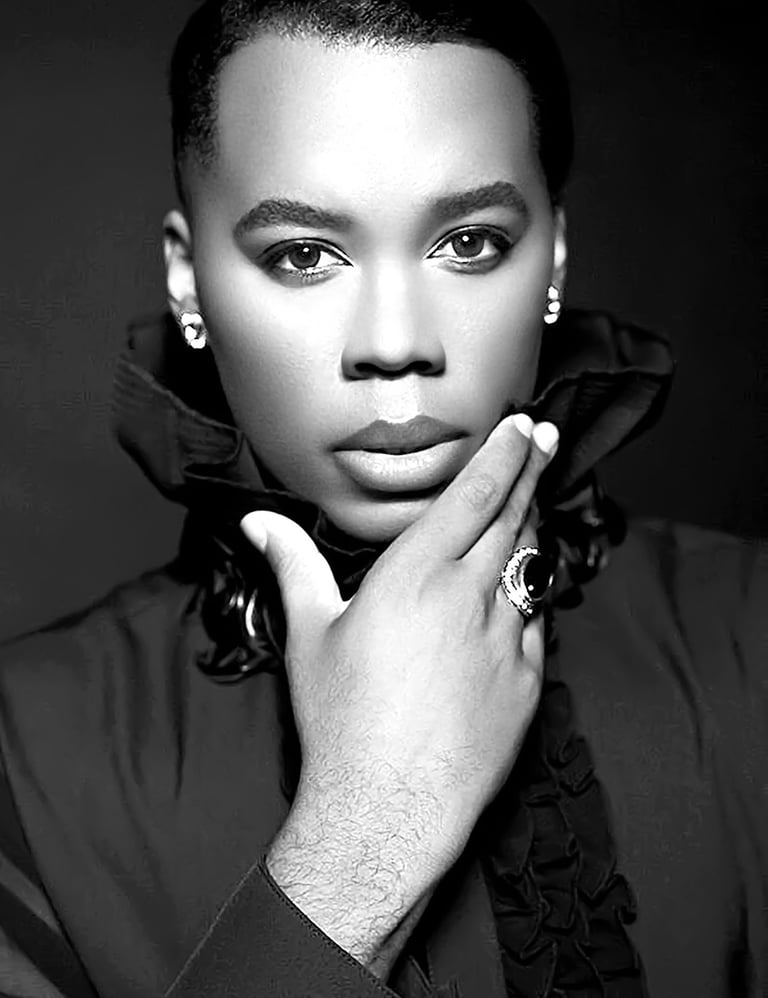

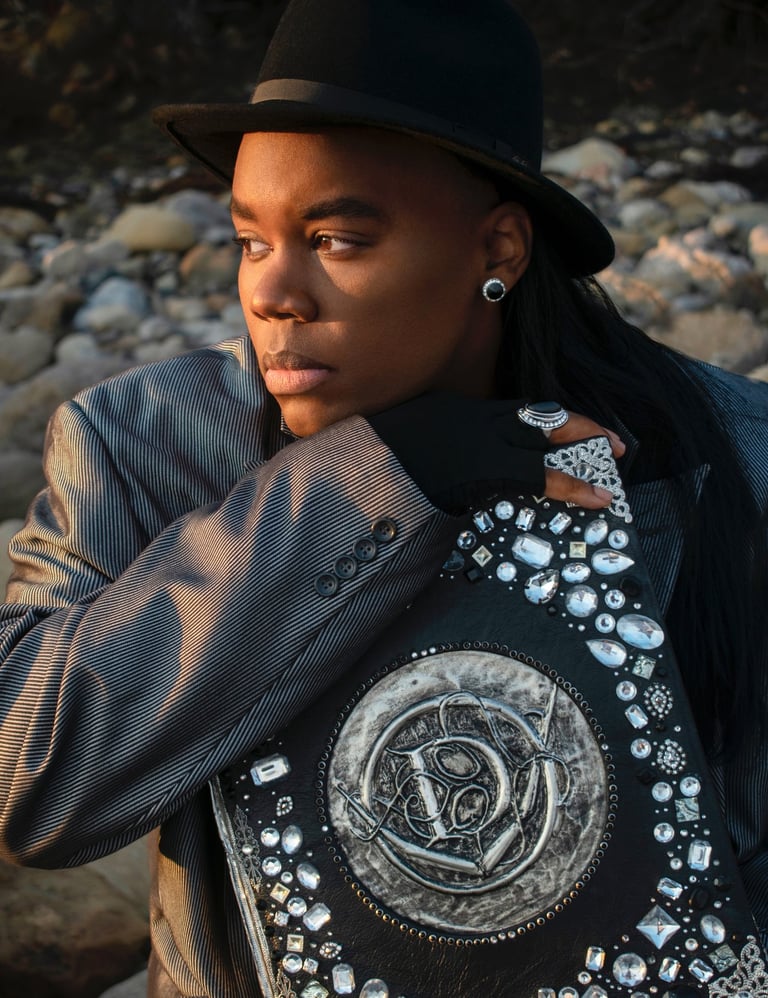

3.) How has grief shaped your creative identity, and do you ever feel like you're creating with those you've lost?
Grief has shaped everything about my creative identity — it’s at the core of who I am as an artist. Losing my grandmother in 2021 changed me forever. She was my heart, my peace, the only person who gave me unconditional love. I still haven’t fully accepted that she’s gone. And now, with the recent loss of my uncle Dave Scott, it’s like another piece of me was ripped away. These aren’t just losses — they’re empty spaces that I carry into every melody, every lyric, every performance.
I don’t create despite my grief — I create through it. It’s the one space where I can truly express what I feel without being judged or silenced. Because in real life, I don’t always feel heard. I don’t have a strong support system. I’ve been let down by people, burned by the industry, and doubted because of how I look or where I come from. But when I create, I feel like my grandmother and my uncle are right there with me. I can almost feel them in the room — like they’re guiding me or giving me strength when I’m ready to give up.
In a way, I do create with them. They live in my art now. Every song becomes a conversation I never got to finish, a hug I didn’t get to give, or a memory I’m trying to keep alive. Grief turned my music into something deeper than just sound — it became my lifeline, my therapy, and my tribute to the ones I’ve lost.
4.) In an industry that often pushes trends, how do you stay rooted in your authenticity?
In an industry that’s always chasing the next trend, staying authentic has honestly been one of the hardest battles — but also one of the most important to me. I’ve never fit into a box, and I’ve never wanted to. I’m not interested in copying what’s hot just to go viral or blend in. I create from a place that’s raw, emotional, and cinematic because that’s who I am. My music isn’t just a product — it’s my pain, my healing, my imagination, and my truth all rolled into one.
Coming from nothing, dealing with rejection, racism, being judged by my appearance, and constantly overlooked — it’s forced me to dig deep and figure out who I really am, not who they want me to be. I’ve been burned, let down, and made to feel like I wasn’t enough. But that same struggle taught me how to stand firm in my vision. I don’t have a huge machine behind me or people spoon-feeding me a path. I’ve had to carve it out myself — and that makes my journey and sound even more personal.
I stay rooted in my authenticity because I know there’s power in being different. The industry might overlook you when you’re not trending, but I believe timelessness comes from truth. And even if it takes longer for the world to catch on, I’d rather be remembered for being me than fade out trying to be someone else.
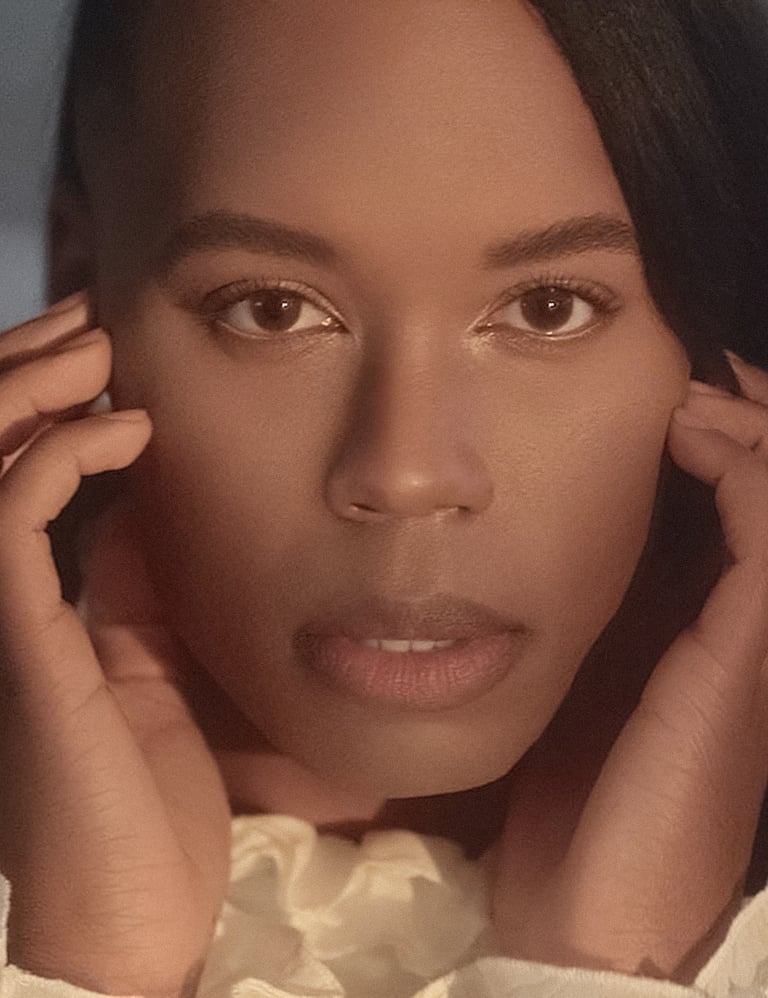

5.) What has fame or recognition taught you about people, and about yourself?
I’m definitely not famous, but getting a little recognition now and then is weird, honestly. It’s a strange feeling when people start noticing you — especially when you come from a past like mine. I had an abusive childhood that made me feel like I was nothing for a long time. That damage doesn’t just disappear. I still struggle with those feelings every day. So when people compliment me or look up to me, there’s still a voice in my head that questions if I’m even worthy of it.
What recognition has really taught me is that people can sometimes forget you’re human. They think because you’re an artist or have some visibility, they’re entitled to your personal life — like they deserve full access to your pain, your past, your privacy. And that’s hard, especially when you’re still healing from things you haven’t even fully processed yourself. People will support you one day and flip the next based on what they think they know. It’s wild.
But it’s also taught me a lot about myself. I’ve realized how much strength it takes to stay grounded, to stay true to who I am in a world that constantly tries to shape you into something else. I’ve had to learn boundaries, self-worth, and that it’s okay to protect your peace. Recognition doesn’t mean you owe everyone your soul. And at the end of the day, I remind myself why I started — not for fame, but because music is the one place I feel free.
6.) Can you describe a visual or dream that hasn't come to life yet, but that you carry with you every day as motivation?
You’re gonna laugh, but honestly, it’s been the same dream for as long as I can remember: just not having to struggle anymore. I come from a life of real, hard struggle. I’ve never even had $3,000 sitting in my bank account — and that’s the truth. People see the glam or the creativity, but they don’t see the behind-the-scenes pain, the survival, the nights of questioning everything.
The dream that keeps me going, that I visualize all the time, is this moment where I surprise my mom. I pick her up in a limo, and I tell her we’re just going to view this beautiful mansion — nothing crazy, just for fun. And we walk through it together, room by room. I see the awe in her eyes, the quiet disbelief. Then at the very end, I hand her the keys and say, “This is yours. It’s paid for. You never have to worry again.”
That vision makes me emotional just thinking about it. My mom had me young, and it wasn’t an easy road for her. She was really the only decent parent I had. Yes, our relationship isn’t perfect — there were definitely mistakes and a lot of pain — but I love her unconditionally. She’s a good person with a good heart. And as her oldest son, it’s been one of my deepest dreams to give her something that shows how grateful I am. Something that says, “You made it too.”
That moment hasn’t come to life yet, but I carry it with me every single day. It keeps me going through the disappointments, the doubts, the losses. It reminds me that there’s still something beautiful waiting on the other side of all this.
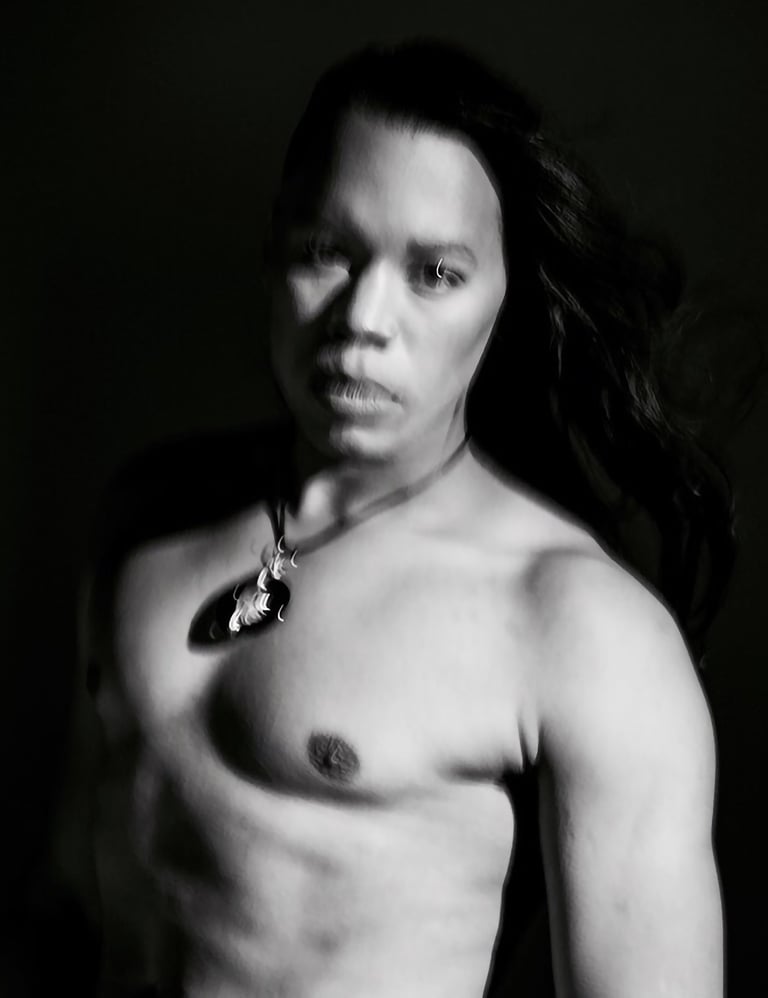

7.) How do you define success today, and has that definition changed over time?
For me, success today means peace. It’s waking up without anxiety, creating without fear, and living without constantly worrying about how I’m going to survive. That’s something I never had growing up. I used to think success was fame — a Grammy, a huge record deal — something that would prove I had made it.
But over time, especially after all the heartbreak, fake managers, failed deals, and being judged for how I look or the color of my skin, my definition evolved.
Now, success is being able to look in the mirror and feel proud of who I’m becoming, even if the world hasn’t caught up yet. It’s pushing through trauma, self-doubt, and rejection, and still choosing to create. Still choosing to dream.
It’s not easy. I’ve never had more than a few thousand dollars to my name, and I still feel like I’m climbing uphill with no rope. But success, for me, is knowing I didn’t let the pain turn me bitter — I turned it into art.
And one day, when I can buy my mom a house and show her that all the struggle wasn’t in vain, that will be success too. It’s no longer about validation. It’s about freedom, healing, and doing what I love on my own terms.
8.) What part of your story do you feel is still misunderstood or unseen by the public?
The part of my story that I think is most misunderstood — or honestly just completely unseen — is how much judgment I’ve carried just for being me.
People, even family, made up cruel rumors based solely on how I looked. And the wildest part is, I never asked to be born this way. A lot of men who are seen as “pretty” or “different” are ridiculed, not taken seriously, or have their masculinity constantly questioned. That happened to me.
Certain family members picked on me for decades — relentless emotional cruelty. And no one ever stepped in to protect me. Nobody defended me. I grew up feeling like I didn’t have a voice, like my worth was tied to how others misjudged me. I never got the chance to fully love myself. Even today, I struggle to accept how I look.
For any child to be picked apart like that — it’s heartbreaking. It leaves deep wounds that don’t just disappear.
People often look at me and assume I’m confident, or full of myself. But what they don’t see is that I’ve had to fight to even feel like I deserve to exist. When you’re isolated and torn down because you don’t fit someone else’s idea of how a “man” should act or look, it messes with your identity.
But I found strength in artists like Michael Jackson, David Bowie, Prince, and Lenny Kravitz. They taught me that you can be unique, artistic, expressive — and still masculine. That helped me realize I don’t need to change to be accepted. I just need to keep being me.
As for those family members? I leave them in the past. Karma will take care of the rest. I just stay away from people who try to dim my light.
What the public doesn’t always see is the pain behind my art. The loneliness. The years of emotional abuse. And yet, I’m still standing. Still creating. Still dreaming. That’s the part of my story that matters most.
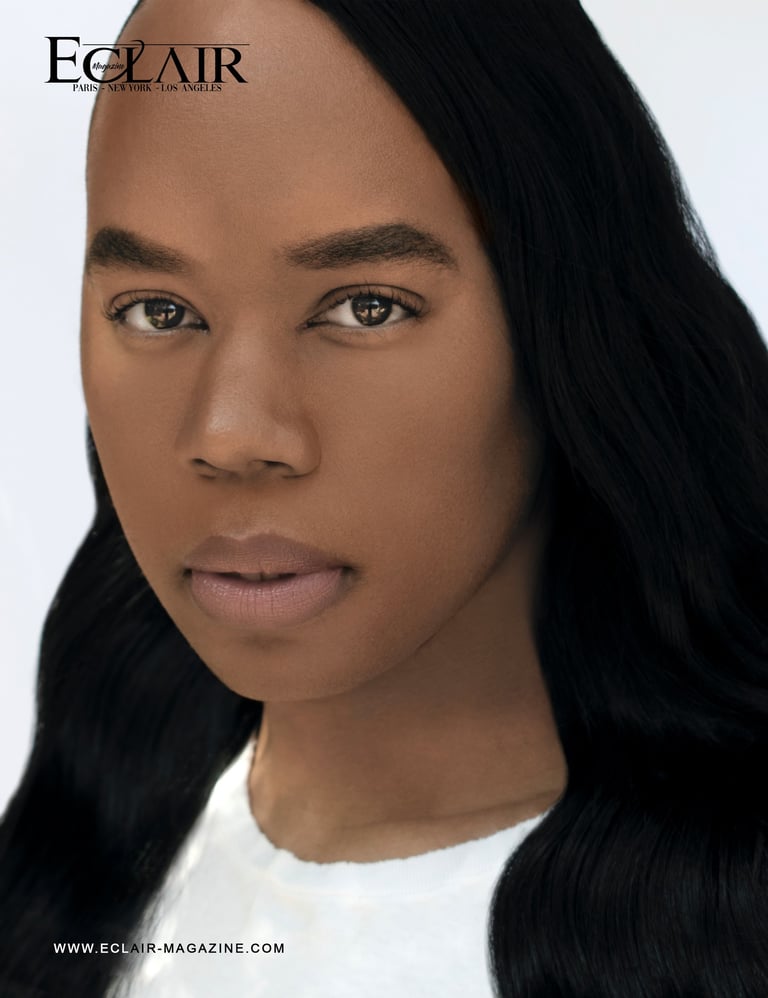

9.) If you could speak to your younger self, the one dreaming in silence, what would you tell him today?
If I could speak to my younger self — the one hiding his pain, dreaming in silence, just trying to survive — I’d sit with him and say, “I see you.”
I’d tell him everything he’s feeling — the confusion, sadness, self-doubt — it’s real, it’s valid, and it’s okay. But it doesn’t define him. He’s not weird for feeling different, or broken because people don’t understand him. He’s just ahead of his time.
I’d say, “They were wrong about you.” Those family members who picked on you, judged you, tried to strip away your worth because you didn’t fit their mold? That wasn’t about you. They were projecting their own fears and insecurities. The pain they caused wasn’t your fault. You deserved love, protection, and to be seen for your heart — not punished for your uniqueness.
I’d tell him it’s okay to cry. It’s okay to feel lost. It’s okay to not be okay.
And I’d say, “You’re beautiful — even if you can’t see it yet.” Because I know how long it’s taken me to accept my appearance. When people judge you for how you look instead of who you are, it twists the way you see yourself. But I’d reassure him: you’re going to grow into someone powerful.
Your pain will turn into purpose. Artists like Michael, Prince, Lenny, and Bowie will help you find your identity — not just as a musician, but as a man. A man who is sensitive, stylish, expressive, and strong.
Lastly, I’d whisper, “Don’t give up.” Because I know how many times he wanted to. The road ahead will be lonely, filled with betrayals and fake people. But your love for music, storytelling, and dreaming — that will save you.
I’d hug him and promise him that one day, he’ll look back and realize he was never weak. He was just never given the chance to show how strong he really was.
10.) Legacy aside, what do you want someone to feel the moment they press play on one of your songs?
Legacy aside, when someone presses play on one of my songs, I want them to feel seen. I want them to step into a world where it’s okay to be broken, emotional, confused, dreaming, healing — all of it.
My music isn’t just about a catchy beat or polished hook. It’s about energy, emotion, storytelling, and truth. I create from a place of pain, isolation, imagination, and survival.
So when someone listens, I want them to know they’re not alone. I want them to feel something real — whether it’s chills, a tear, a spark of inspiration, or just a sense of escape from whatever they’re going through.
I want them to get lost in the drama, the beauty, the darkness, and the light of the soundscape I build. Whether it’s a song about heartbreak, inner battles, fantasy, or empowerment, I want them to walk away feeling different than before they pressed play.
At the end of the day, music saved me. So if mine can give even one person a moment of peace, connection, or the courage to feel deeply again — then I’ve done my job.
Quality, not quantity
We have made quality our habit. It’s not something that we just strive for – we live by this principle every day.
